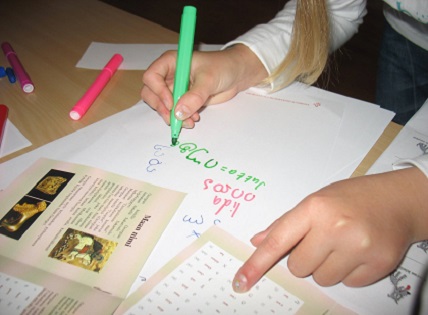Georgian language celebrated in European Day of Languages

Georgia’s ancient language is being recognised among some of the most popular languages in the world at an event dedicated to celebrating European languages.
Kartuli, as the language is known in its home country, is today being presented at a special event in Stockholm, Sweden. The Embassy of Georgia to Sweden has prepared a detailed programme for about 500 Swedish children to take part.
Today’s event was part of the annual European Day of Languages celebration that was marked annually on September 26 following its establishment in 2001. This was the first time the Georgian mother tongue was showcased in the European Day of Languages.
The aim of the event was to raise awareness of the languages used in Europe, promote cultural and linguistic diversity and encourage life-long language learning, organisers said.
Meanwhile Georgia’s unique language was recognised on September 26 at the same celebration in Helsinki, Finland. Efforts of the Embassy of Georgia in Finland allowed the Caucasian language to feature in the event.
To raise awareness of the Georgian language, the Embassy designed and printed small booklets that outlined the history of the Georgian language. It also contained Georgian words and simple phrases expressed in Latin, which could be easily pronounced by foreigners.
The European Day of Languages was declared by the Council of Europe in 2001, which represents 800 million Europeans from 47 countries.
In the European Union there are 24 official languages, about 60 regional and minority languages and more than 175 migrant languages.
Meanwhile, a Georgian literature corner opened at the Swiss National Library on September 29.
Some classic Georgian literature including the Knight in the Panther's Skin by Shota Rustaveli, the Collected Poems by Ilia Chavchavadze and Introduction to Philosophy by Shalva Nutsubidze were on display.
This is the first time German and French translations of work from prominent Georgian writers was available at the Swiss National Library, which included a network of 26 libraries in the Swiss Confederation.
 Tweet
Tweet  Share
Share